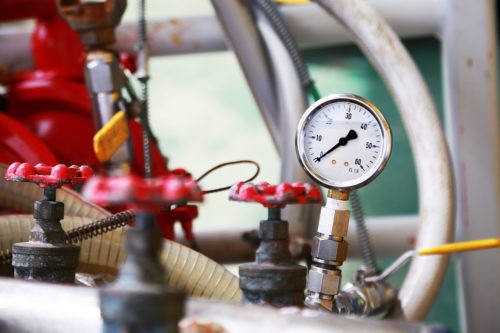Industrial plants rely on various chemicals and chemical combinations to produce certain products. Generally speaking, plants operate at a rapid pace, with the goal in mind to produce as much output as possible. Employees are expected to handle machinery in a practically flawless manner or else output can be stunted, or, much worse, their safety may be at risk. Air pressure vessels stand as a key source of production. They are also required to be up to code for safety purposes. If not routinely inspected and monitored, an air pressure vessel could crack or erupt. Therefore, it’s best to keep an eye on each one within a plant…for the sake of the plant and its employees.
Air pressure vessel hazards can be attributed to the chemicals within; however, issues often arise from the vessel build. Specifically, the initial weld of an air pressure vessel will result in cracking. This may not occur right away, but a crack could develop over time. For example, if a vessel was not post weld heat treated, it may not be able to hold up against extreme heat. Pressurized containers are going to demand extremely high temperatures. If the vessel is not prepared for the heat, problems are likely to occur.
 Additionally, cracks can surface from small hard zones brought about by welds, as well as simple corrosion. Through the cracks, come leaks. Leaks can result in poisoning or suffocation. Obviously, it depends on the chemical(s) being leaked. Many chemicals are flammable. A leak to a flammable material from an air pressure vessel could set the plant on fire or cause an explosion.
Additionally, cracks can surface from small hard zones brought about by welds, as well as simple corrosion. Through the cracks, come leaks. Leaks can result in poisoning or suffocation. Obviously, it depends on the chemical(s) being leaked. Many chemicals are flammable. A leak to a flammable material from an air pressure vessel could set the plant on fire or cause an explosion.
The horror stories we hear about regarding industrial plants are generally explosion related. In 2013, the West Fertilizer Company experienced a tragic explosion that killed 15 people. Alongside the casualties, a portion of the small city of West, TX was destroyed. The notable West explosion is one of many plant explosions that could have easily been avoided. In fact, evidence determined the West Fertilizer Company had not undergone a OSHA (Occupational Safety and Health Administration) inspection since 1985.
An explosion to an air pressure vessel is caused by an expansion of pressurized fluid. Moreover, if pressure exceeds the psi in which the vessel is designed for, an eruption is possible. Those who operate air pressure vessels are experts, or at least they should be. It’s not necessarily a lack of expertise that causes hazards, it’s more often basic negligence.
For this reason, routine inspections and improved inspection resources are all it takes to avoid major catastrophe. Don’t put your plant in a situation where employees are scrambling for an immediate repair or scared for their lives. Do the inspection work up front. If the operating machinery is up to code and in good condition, your plant will benefit from increased output and the employees will work more comfortably, without feeling as if their health or safety is at risk.
Frazier Reliability Solutions focuses on plant health and safety. Our innovative inspection technology has benefited a number of industrial plants since our establishment in 1996. Let our technology improve the efficiency and safety of your plant. Contact Frazier Reliability Solutions today! Also, please see our company blog for additional news and information.